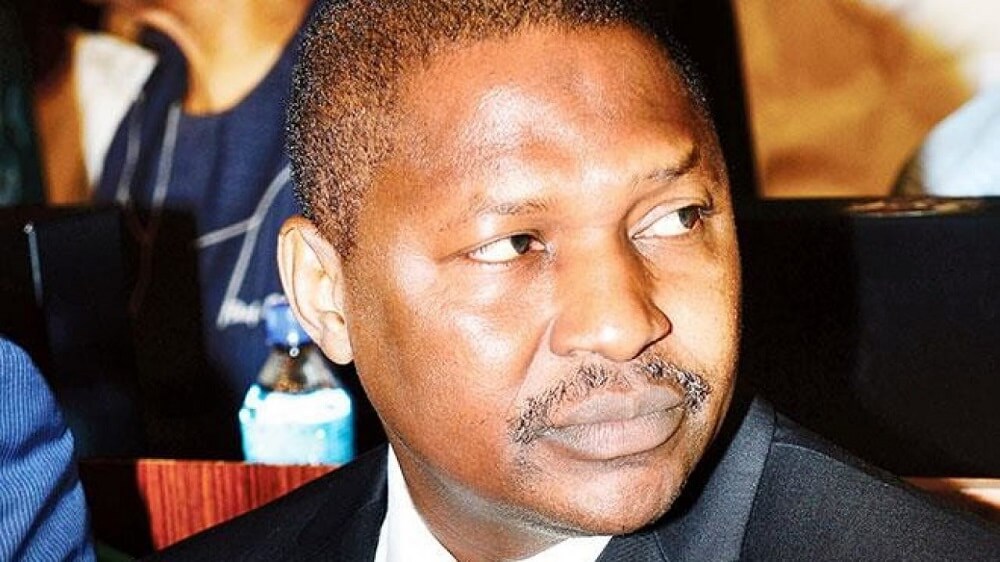The Attorney-General of the Federation and Minister of Justice, Abubakar Malami, SAN has explained why he does not want to disclose the names of suspected terrorism financiers in the country despite the hundreds of lives that have been taken due to terrorist attacks.
Speaking to newsmen on the sidelines of the ongoing 76th session of the United Nations General Assembly, New York, on Wednesday, the AGF said revealing terrorism sponsors at this point could jeopardize ongoing investigation of terrorists and their sponsors by security agencies.
Advertisement
“As far as terrorism funding and financing is concerned, we have succeeded in identifying those that are allegedly responsible for funding same and we are blocking the leakages associated with funding while embarking on aggressive investigation that is indeed impacting positively in terms of the fight against terrorism.
“The truth of the matter is that investigation is ongoing and advancing. For the purpose of investigation, I would not like to be pre-emptive in terms of making disclosures that will have effect of undermining the successes we are recording.
“One thing I can tell you for sure is that whatever we do in terms of detention and arrest is indeed backed-up by judicial processes. We have acquired and obtained legitimate court orders taking into consideration the facts and material proof of evidence presented before the court on account of which the court eventually exercises its discretion in terms of granting orders that we can have the suspects in custody pending the conclusion of the investigation,” Malami was quoted as saying in a statement issued by his spokesperson, Dr. Umar Jibrilu Gwandu.
Malami added that although the federal government remains committed to prosecuting the suspects, constitutional provisions stipulate that names of such persons be made public when they are arraigned in court.
Advertisement
He disclosed that out of over one thousand Boko Haram case files domiciled in his office, about 285 have already been filed before the Federal High Court “based on prima facie cases of terrorism against them.”
He assured that calling out those allegedly engaging in terrorism lies with what plays out in court.
“Naming and shaming in the Nigerian context must be rooted in constitutionalism. We must strike a balance between constitutional presumption of innocence and evidential proof of reasonable ground for suspicion in making disclosures associated with terrorism funding and financing.
“Where reasonable grounds are established, suspects must be naturally taken to court at which point their identity must be disclosed and the naming become apparent. Shaming, on the other hand, is the product of conviction at which point the public are equally judicially put on noticed.
“In essence naming and shaming within the context of Nigerian law are judicial functions which commence with arraignment and terminate with convictions,” the statement partly read.



